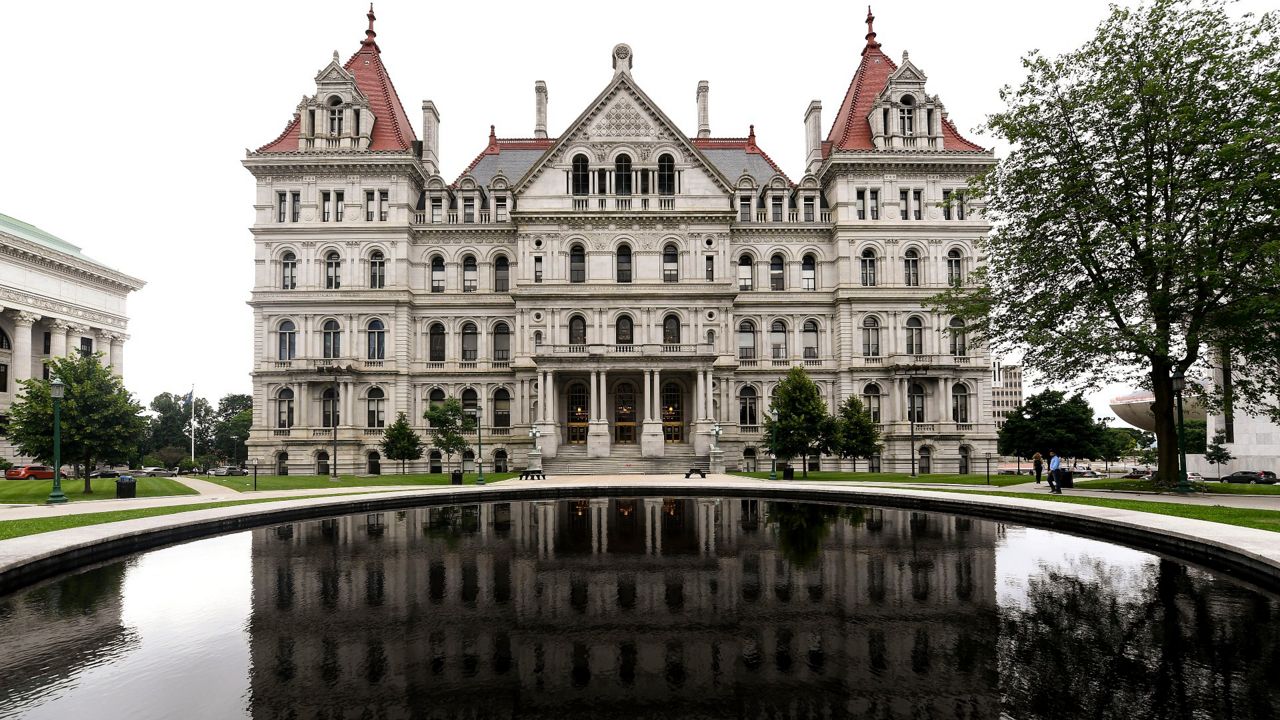Calls are growing within the state Legislature and among good-government organizations in New York to replace the state government's ethics and lobbying regulator with a commission empowered with more independence from elected officials.
The current panel, composed of appointees of the state Legislature and the governor, has long been criticized for lacking transparency in its decision making or investigation and pursuit of small-bore targets.
But now the commission, known as JCOPE, could be an indirect casualty of the resignation of Andrew Cuomo from the governor's office. State lawmakers on Wednesday took testimony from good-government organizations and legal experts on policing ethics in state government, with the commission drawing specific ire.
"JCOPE is built on a quicksand of conflict of interest," said Rachel Fauss, a senior research analyst with the group Reinvent Albany in testimony to state lawmakers.
Fauss pointed to the commission's approval for lucrative book contracts for the former governor, including a $5.1 million agreement last year to write a memoir about the pandemic. Government resources have allegedly been used to help Cuomo write the book, and Attorney General Letitia James's office is now investigating.
"Federal prosecutors and the state attorney general, not JCOPE, have conducted the fight against corruption in state government," Fauss said. "The highly politicized JCOPE often appears to serve to protect those in power."
The commission was created more than a decade ago after an agreement reached by Cuomo and state lawmakers on a package of ethics laws changes. At the time, the new governor was under pressure to put tough new ethics measures in place after running on a promise of cleaning up Albany.
But the new commission in large part replaced a previous body, known as the Commission on Public Integrity, with only a handful of cosmetic changes.
In the years since its approval, the Joint Comission on Public Ethics has investigated the advocacy of a survivor of sexual abuse, frequently conducted work in private session, has been the source of embarassing leaks and did not investigate bribery allegations leveled against former Cuomo aide Joe Percoco.
Cuomo, along with the top lawmakers at the time who presided over JCOPE's creation — former Speaker Sheldon Silver and ex-Senate Majority Leader Dean Skelos — are now all out of office.
Gov. Kathy Hochul, who took office this week, has vowed to put in place a more transparent and open state government.
"There has never been a more urgent time to reform New York’s system of ethics, and I am grateful to hold today’s hearing just one day into Governor Kathy Hochul’s administration," said Sen. Alessandra Biaggi, the chairwoman of the Senate Ethics Committee. "This is the start of a new chapter in Albany and we have an opportunity to set the tone to ensure restoring integrity in our government is a top priority."
Sen. Liz Krueger has proposed a constitutional amendment that would replace the commission with body meant to deter public corruption and designed to be more independent, modeled after the Commission Judicial Conduct. A majority of the commission's members would be appointed by the judiciary, not the Legislature or the governor.
For reformers, the hope in Albany is the new Hochul administration will be able to address the vexing issue of ethics and corruption the Capitol has been known for — and many new governors have vowed to solve.
"It is time for a major cultural shift ushering in a new era of ethics oversight in Albany," said Susan Lerner, the executive director of Common Cause. "JCOPE can no longer be reformed, it must be torn down and replaced with something entirely new that instills confidence in New Yorkers. Oversight must be truly independent. We hope to see an ongoing public conversation — and much needed change — on ethics reform in New York."



